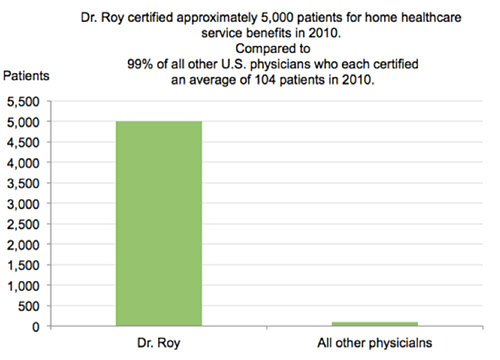Wow, man.
Welcome to the age of Big Data-the shorthand term for new trends in technology that shine a bright light on the path to better understanding our world and making savvier decisions about it. Big Data is a new class of economic asset, like oil or gold.
As healthcare professionals and consumers, we all experience the power and promise of Big Data, whether we fully realize it or not. Consider, for example, Big Data from healthcare claims, which is used to negotiate third-party-payer contracts and to set insurance benefit levels throughout the U.S.
Or, consider the potential predictive power of Big Data in managing public health. Researchers have found, for example, a spike in search-engine requests for terms like “flu symptoms” and “flu treatments” a couple of weeks before there is an increase in flu patients coming to hospital emergency rooms in a region (and emergency department reports usually lag behind visits by two weeks or so).
On some level, we are all aware of the importance and power of Big Data in influencing a range of healthcare activities and decisions.
Well, almost all of us, that is.
Last week, six people were arrested near Dallas, Texas, on charges related to their alleged participation in a nearly $375 million Centers for Medicare and Medicaid Services (CMS) billing-fraud scheme. According to the indictment, Dr. Jacques A. Roy of the company Medistat and his co-conspirators ran a well-organized enterprise in the Dallas area, making millions by recruiting thousands of patients for unnecessary home health services, and billing CMS for those services.
Apparently, these folks were so busy bilking CMS and the American taxpayers out of millions of dollars that they were blissfully unaware of the power of Big Data to detect their crimes.
“Using sophisticated data analysis, we can now target suspicious billing spikes,” said Health and Human Services (HHS) Inspector General Daniel R. Levinson in an Associated Press report. “In this case, our analysts discovered that in 2010, while 99 percent of physicians who certified patients for home health signed off on 104 people or fewer, Dr. Roy of Medistat certified more than 5,000.”
Perhaps a visual would have helped Dr. Roy and his bandits to see the error of their ways.

(Or maybe not…)
In June 2011, CMS suspended provider numbers for Dr. Roy and Medistat based on suspicions of fraud, thus ensuring that Roy did not receive payments from CMS. Immediately after the suspension, nearly all of Medistat’s employees started billing CMS under the provider number of a business called Medcare HouseCalls, whose certifying physician was…yup: none other than Dr. Roy.
If it were raining brains, this group wouldn’t get wet. Clearly, they didn’t use the spoils of their crime to buy a “Big Data Clue.”
It is reassuring to know that the feds are monitoring data for this type of fraud, but I am anxiously awaiting the day when these systems, having learned from the patterns in Big Data, can significantly speed up the process: this outfit had been in business since 2006.
It’s true: Big Data is a new class of economic asset, like oil or gold. It can catch thieves, predict an influx of flu patients, and-yes-identify and precisely market products to pregnant women!
Check out a few more examples on my blog: you’ll be amazed at the promise of Big Data to change the management and delivery of healthcare services…and our lives.

Leave a Reply